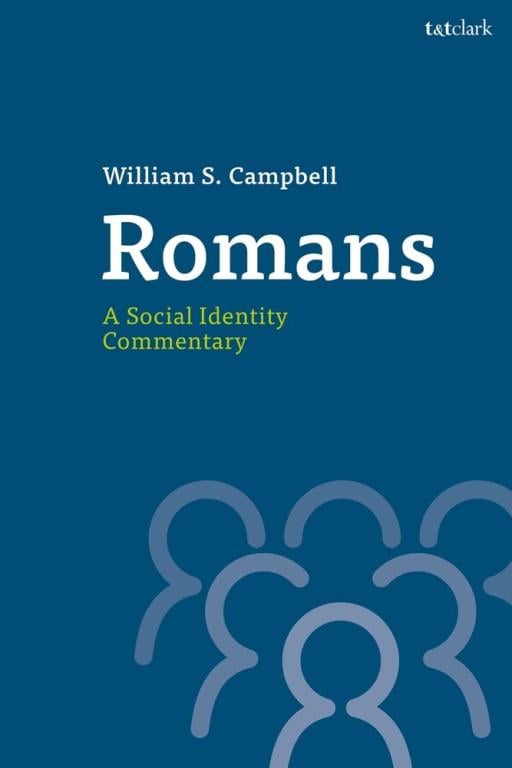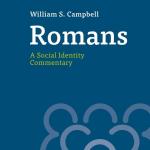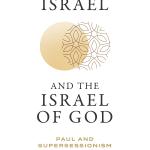Campbell admits that Paul identifies with the strong who have less scruples about food etc. This is mentioned only once at 15.1—and the only stricture he puts on the weak is that they recognize that there are other acceptable ways to practice the faith so they should not be judging people who do not have all their scruples. The major exhortation, including Scripture is that the strong should bear with the weak, and not separate from this but encourage them.
Why should we think the world ‘nations’ always refers to just Gentiles, if Paul is addressing only Gentiles? The majority of Jews lived ‘in the nations’, Not in Israel. Furthermore, the evangelistic efforts of the Christ followers involved both Jews and Gentiles, particularly in the nations.
The catena of quotations in Rom. 15 includes the exhortation at the very outset to ‘welcome one another’ after the word ‘therefore’ and means surely there is a connection with what came before in Rom. 14. The phrase itself implies a group of people Paul here is addressing, indeed two groups he is addressing, just as we see in the following chapter Rom. 16. In light of the mention of both ‘the circucumcision’ and Gentiles in what follows the natural way to take this is Paul is indeed NOT just speaking to Gentiles. No, he is speaking to Jews and Gentiles that are both part of the Christ followers in Rome but are not meeting together, and need to get on with being more unified, here step one is welcoming, step two will be made clear in Rom. 16 where Paul exhorts ‘greet X,Y, Z with every show of affection. And about whom is Paul saying should receive this greeting—- Jewish Christians in Rome like Priscilla and Aquila, and Andronicus and Junia etc.
And then there is that word DIO. If Jews and Gentiles who are Christians (because Paul has no basis for addressing non-Christian Jews here in Romans) are both being addressed and told to welcome one another then retrospectively this favors the conclusion that Paul is addressing both Jewish and Gentile Christians in Rom. 14 as well, which is the more natural way to read Rom. 14. Christ is the servant of the Jews, and also of the Gentiles, since he is the messiah and savior for these two groups, not just to Jews or just to Gentiles (and by the way this comports with the historical Jesus’ actual mission to Jews almost exclusively during his ministry). He did not do his ministry just to confirm the promises to Abraham about being a light to the Gentiles. No, the Gospel itself is for the Jew first, and also the Gentile— an emphasis already in Rom. 1 and this is because both of them need it.
The essence of Campbell’s view of Paul’s argument is that he is trying to emphasize the acceptance of difference between Gentile Christians and yet still welcoming one another, and thereby understand one should be able to accept the difference and particularity of Israel, not as if they have been replaced by another people. In other words, this is an anti-supercessionist argument. The essence and summary of Campbell’s argument can be found on p. 395. He sees 15.7-13 as the real conclusion of the letter.
He says on p. 395 “Neither the identity of the nations nor the identity of Israel has been dissolved, but now both together as distinct but related corporate entities, can join in the praise of God through the Christ. Paul’s global vision, emphasized in his linking in family brotherhood the Messiah from the Davidic seed of Jesse with the incoming of the nations, represents another stage in his hope for the world and merits the rejoicing that in introduces here. As we noted in the Introduction chapter, Paul does not regard the promises as having already received fulfillment, but speaks of affirmation of the promises, looking forward to a consummation still to come. Jews and non-Jews join together under the umbrella of a superordinate collective identity as part of their doxological identity. This identity, to include the people of Israel both prior to and after the Christ-event, must be a superordinate identity not under Christ but under the God of Israel. As each together, but differently, glorify the God of Israel, his glory will be more fully expressed…..Thus we can distinguish our reading of 15.7-13 as a discussion within an inter-ethnic horizon in contrast to 14.1-15.6 which is an inner- gentile discussion.”
Campbell does not take note of my pointing out about Rom 16 how odd the greetings are there. Paul is asking one group of Christians in Rome, the largely Gentile group, to greet another group of Christians in Rome and it is not by accident that he lists a bunch of Jewish Christians including some of his co-workers. This is because Jewish and Gentile Christians are not meeting together in Rome, at least not sufficiently to be unified, and this letter to the Romans is intended to help that need be overcome before Paul gets to Rome.
I have not stressed this in these posts, but one of the major problems with Campbell’s analysis is that it does not comport with what Paul says in other letters, namely that every knee will bow and every tongue confess Jesus Christ is Lord. In other words, he underplays the high Christology of Paul. As Phil. 2 says God has even given him the name that is above all names, which makes him an appropriate object of worship for both Jew and Gentile. Now, Paul doesn’t really envision this happening on earth fully before the return of Christ, which Rom. 11 makes clear, but he does envision it happening then all Israel will be saved in like manner to the Gentiles, by the grace and mercy of God and by faith in their returning messiah, not by continuing to keep the Mosaic covenant.
Nevertheless, despite all my critiques in these posts, this is a very important commentary on Romans, one of the most important ones, and the first one to take in the letter from a consistent SIT point of view which is very helpful. As such it strengthens the case for some aspects of the Paul within Judaism argument, but not enough to convince me that’s the best way to read the Pauline evidence.














